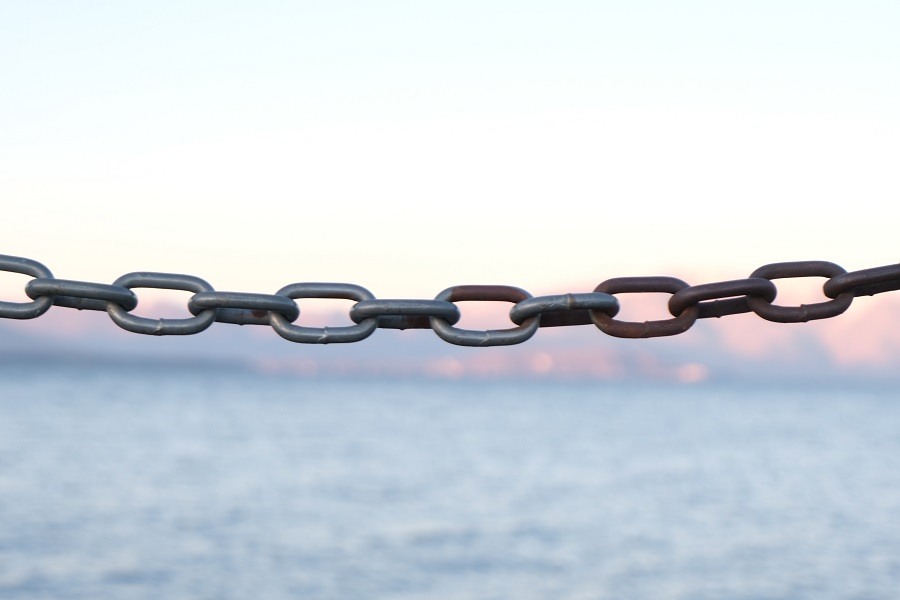What is networking?
When you start with the development of your website, you will come across a lot of new terms, the linking will be one of them. In this blog post we will discuss what this means and how you you can benefit from it.
At MijnHostingPartner.nl, where we not only offer reliable hosting, we also like to give our customers valuable insights To strengthen their online presence. In this blog post we dive deeper the concept of linking and show you how you can use this powerful tool to take your website to the next level.
In the world of web development and search engine Search Engine Optimization (SEO), interlinking refers to the process of connecting different connecting different pages within one's website through Hyperlinks. These hyperlinks, which are also referred to as internal links, allow allow users to easily navigate from one page to another and at the same time contribute to the structure and hierarchy of your website. Users and visitors who want to read more of the same type of content can use
Internal links can be either text links or image links and can lead to different pages. They can lead to different pages, such as blog posts Product pages, service pages, or contact pages. The purpose of linking is twofold: to improve the user experience and to optimize your website your website for search engines.
Advantages of linking
Improved navigation: by adding relevant internal links. add relevant internal links so visitors can easily move from one page to another, This allows them to stay on your site longer and discover more of your content. At Text links can also have a higher click-through rate than links at the very bottom of of a page or in a separate menu. A link in the text that is read and points to a relevant source, may be clicked on more often than a link in a hidden menu.
Increased page value: Internal links contribute to the distribution of "page value" or "link juice." This means that if a page performs well in the search engines, the link value is also passed on to the pages pages it links to, which means they also perform better in search results. Pages that are already well presented can also link to new resources or pages Link pages so that they are indexed faster by search engines. The opposite way works As soon as you link to another page on a new resource, its Value of this also increases with it.
Improved themes: By linking related pages to each other link, you can emphasize the coherence of your content. This helps Search engines and users to better understand your site's content. And make your Website more subdivided by topic. This way, you can build more authority on that subtopic or Main topic build more authority, which can help you. One page or one article on one topic has little chance to rank in many Domain. A group of pages dealing with the same topic can therefore support each other.
Lower bounce rate: Well-placed internal links can reduce your site's bounce rate because they encourage visitors to To visit multiple pages. If a visitor reads through a resource but but does not take any further action on your site, in some cases this can also lead to a negative lead to a negative experience. However, this is different in every domain, and for and for some websites, exactly the purpose of it. In terms of bounce rate, several schools of thought have emerged in recent years. have emerged.
Tips for effective use of internal links
One of the most important things to keep in mind to keep in mind when linking within your website is the relevance of the pages. The content should be relevant and therefore on the same topic or a similar topic that might be of interest. So take this into consideration and do not try to link just for the sake of linking.
Also, the anchor text, which is the visible text of the link, is important for both users as well as for the search engines. Use descriptive and relevant anchor text to make clear Make it clear where the link is going. And don't just use click here or See here, for example. Make this text relevant to the title, or on the other side in a logical way.
Depth of links: Don't just place internal links on your Home page, but spread them throughout your site. This will also lead to deeper pages to be indexed and appreciated better as well.
Use hierarchy: Organize your internal links according to the hierarchy of your website. More important pages can receive more links than less important pages.
Avoid excessive use: Although linking is beneficial you should avoid placing too many internal links on a page. This can be confusing for users and have a negative impact on the user experience.
In a nutshell, linking is an effective strategy to strengthen your website's structure, improve your search engine optimization, and improve the overall Optimize the user experience. At MijnHostingPartner.co.uk we encourage our customers to use internal links intelligently so that their website can effectively and stand out in the online world.
Do you have any questions about linking or other web related topics? Do not hesitate to contact us. We are always ready to help you achieve your online goals! Choose the right foundation for your website with one of our hosting packages .
